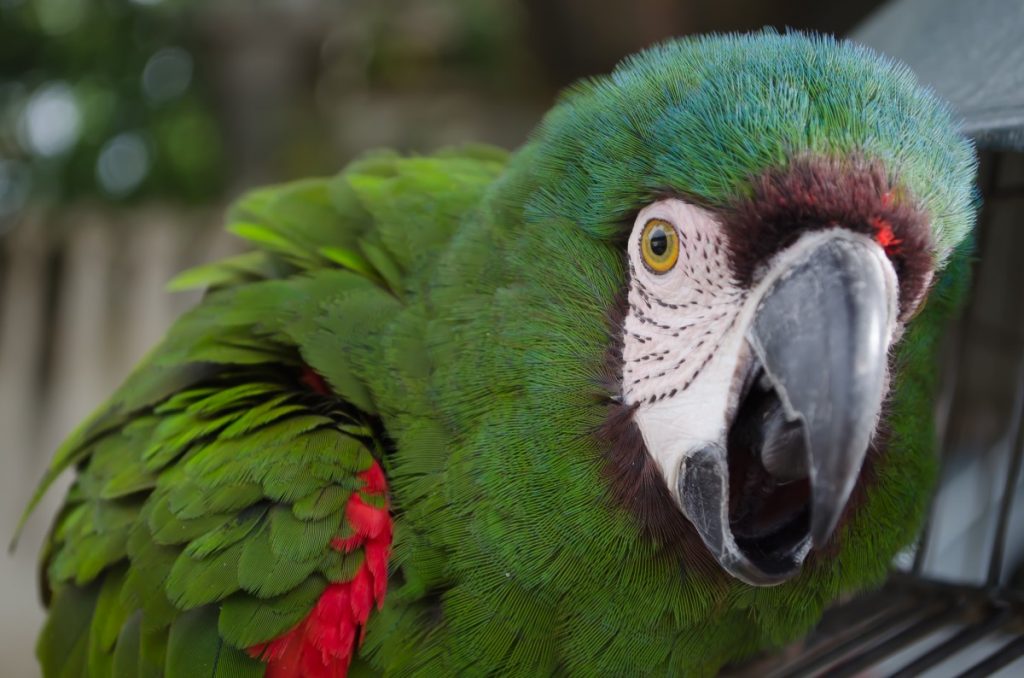Aggression in Parrots

This is one of the most common behaviour problems that I am asked about. Sometimes aggression towards members of the family but not towards a preferred person can be due to over-bonding.
It is very important to remember that aggression can be due to pain, medical or hormonal disturbances. Therefore it is very important to get your bird checked over by a suitably qualified vet with a special interest in avian species.
Once a vet has ruled out medical problems it is important to understand normal bird body-language. Very often they will issue a warning before using aggression. In fact parrots are creatures that do not like conflict and use aggression as a last resort.
Remember too that we humans are a very tactile species whereas many parrots prefer not to be touched. For some parrots being touched when resting can startle them or they simply prefer to be left alone (like most of us when we are trying to sleep!).
Signs to look for include:
- A pinned eye
- Ruffled feathers
- Striking the head towards you
- Growling, screaming and other vocalisations
If you see any of the above signals try and prevent the problem from escalating. Look for triggers and remember the ABC of behaviour.
A. Antecedent – What are the conditions and what happens before the behaviour?
B. Behaviour – what does the bird do?
C. Consequence – what is the outcome of the behaviour?
One of the benefits of using the ABC is that it helps us analyse a behaviour but more importantly makes us consider what we do to provoke a problem.
Using this example:
A. = The bird is sleeping/resting. The owner goes up to the bird and puts their hand towards it.
B. = The parrot shows a pin eye and ruffles their feathers. Eventually, because the owner proceeds to touch the parrot, it lunges towards the hand
C. = The owner shouts at the bird (an aversive altercation) and goes away.
Analysing that sequence helps us clearly see the trigger: It is in fact that the bird is resting and the owner is disturbing it. Only when the owner fails to respond and continues to advance does the bird escalate its aggression. In this case, by avoiding touching the parrot whilst they are resting would have prevented the aggressive encounter.
So next time your parrot uses aggression think about the antecedents to the behaviour and try and rearrange them. By so doing you might work out a positive solution to the problem.